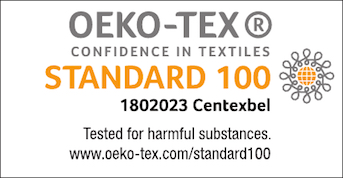OEKO-TEX Concept
The textile industry is characterised by a form of cooperation in which each production stage from raw material to finished textile product is often located in a different place in the world. This extremely fragmented structure is reflected in the complex supply relationships between all the companies involved throughout the textile processing chain. On top of this, different environmental regulations apply in the individual countries involved in textile production.
This is where the basic concept of the STANDARD 100 by OEKO-TEX® applies: The aim of the criteria catalogue is to level out global differences regarding the assessment of possible harmful substances in textiles. The OEKO-TEX® system can identify and eliminate potential sources of problematic substances at each processing stage. Testing becomes necessary whenever a textile product is recomposed or a chemical change is made to its material.
With regard to the global structure and high division of labour in textile production the OEKO-TEX® criteria catalogue for the first time provides manufacturers in the textile and clothing industry with a uniform benchmark on a scientific basis for the evaluation of potentially harmful substances in textiles.
The OEKO-TEX® label indicates the additional benefits of tested safety for skin-friendly clothing and other textiles to interested end users. The test label therefore provides an important decision-making tool for purchasing textiles.
For more information please view the Oeko-tex factsheet
